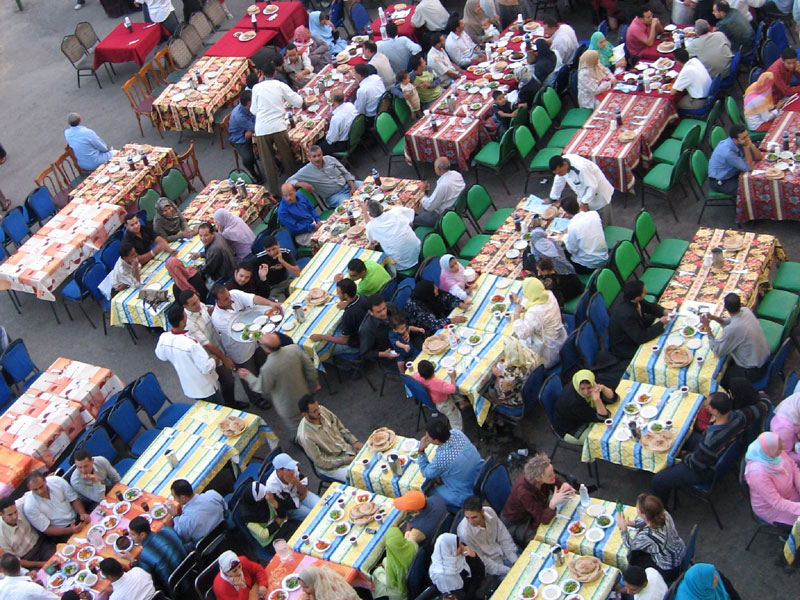In some Muslim countries, more food is thrown away during Ramadan than at any other time of year.
During the Holy Month of Ramadan, many of the world’s 1.8 billion Muslims fast; eating and drinking nothing while the sun is up. Once the sun sets they break their fast with a meal called Iftar, which is often a big, celebratory affair with friends and family. But some Muslim-majority countries are starting to get alarmed about an unfortunate side-effect of this tradition: a big uptick in food waste.
In Arab countries, more uneaten food is chucked out during Ramadan than at any other times of the year. Over half of all Dubai’s rubbish during this time is food (up from a fifth normally). Bahrain’s food waste increases by 50 percent and the United Arab Emirates’ by 67 percent. Part of the reason may be that hungry humans are susceptible to the ‘eyes bigger than your stomach’ effect and over-order. Restaurant buffets, which are popular but wasteful (only about half the food in them is eaten), are also blamed.
Food waste, which occurs all around the world, causes problems. Making food damages the environment (for example, through deforestation and fertilisers poisoning water supplies). If the food is then never eaten, there’s no benefit to weigh against these costs. And most uneaten food ends up in landfills, where it decomposes to create methane, a greenhouse gas that causes climate change.
Throwing away food is also problematic when there are food shortages in the area. That’s the case on an individual level - as in all areas of the world, some people in Arab countrieslive in poverty and struggle to always get enough to eat - but also a regional one. Many Arab countries are net food importers, which means they don’t grow enough food to feed their population and have to buy some from other countries. That can be expensive. It can also leave countries feeling vulnerable - because in a conflict their enemies could cause them lots of problems by cutting off their food supply.
In response, some Arab countries are looking for ways to cut back on Ramadan food waste. Information campaigns are drawing people’s attention to the problem. Buffets are being discouraged in favour of ordering a single dish off a menu. Restaurants that stick with the buffets are collecting data on which dishes are unpopular and cooking less of them (the Hilton cut food waste by 70 percent through this method). And charities have sprung up which go around collecting uneaten food and distributing it to the less well-off.
Read our explainer on: food.

